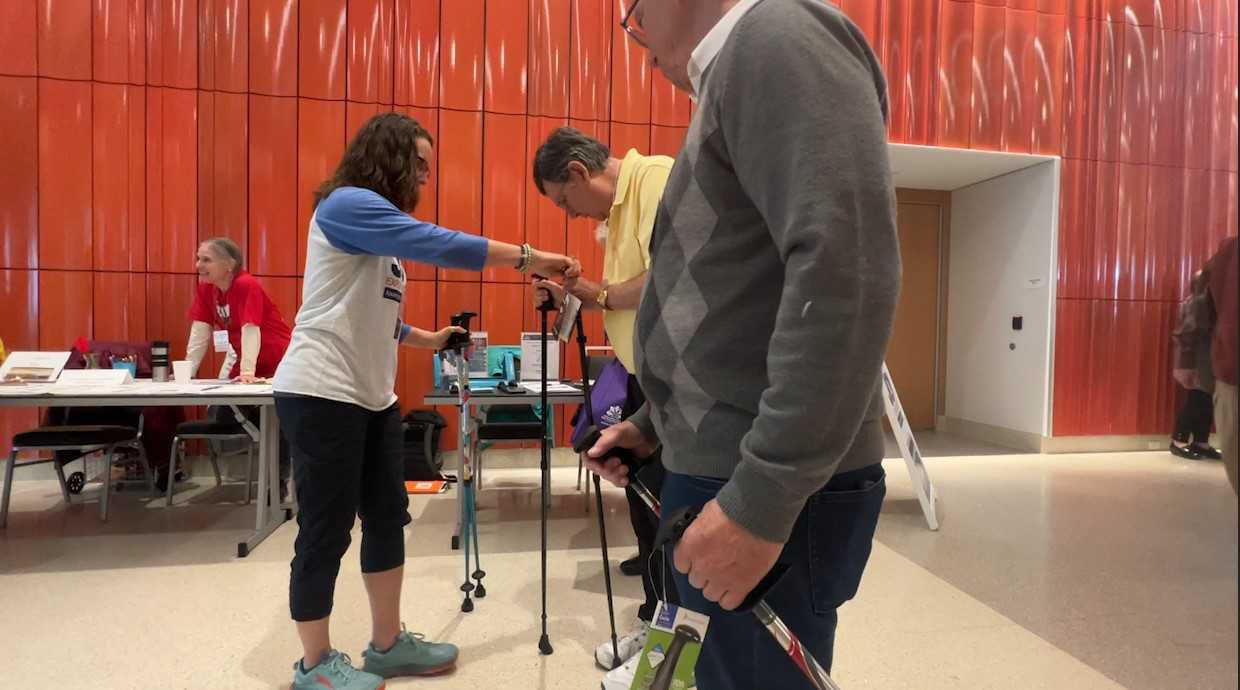BROOKFIELD, Wis. — A Wisconsin physical therapist is working to keep people living with Parkinson’s disease more active during their battle with the illness.
On Tuesday, hundreds of people made their way to Brookfield for the annual Parkinson symposium, which took place during Parkinson awareness month.
Parkinson’s impacts tens of thousands of people from Wisconsin. The symposium hosted speakers and educational events for those with the disease and their family members.
The symposium aims to provide hope and resources to people across the state.
"Anybody with Parkinson’s and their loved ones come here to gather for a sense of community, and a sense of hope, and to gain information,” Wisconsin Parkinson Association executive director, Kelly Cieslak said. “WPA provides hope community, support, and resources for individuals with Parkinson and their loved ones."
The Wisconsin Parkinson Association said this year’s event broke attendance records.

Joy Cochran was one of more than 40 vendors at the symposium. Cochran is a doctor of physical therapy and owns “Joy Explorations.” The company helps people living with Parkinson’s get outdoors and remain active. Cochran said being able to help those with Parkinson's is a part of her life’s work
“To me, it’s worth everything,” Cochran said.
“Joy Explorations” allows her patients to bike, hike, walk and do many other outdoor activities to remain active during their journey.
“I’ve tried to create programs that are evidence based but that are in the real world and meaningful for people,” Cochran said.
Greg Roe attended the symposium. He said he was diagnosed with Parkinson’s in 2016. Roe said staying active is a big part of his treatment, both physically and mentally.
“I have Parkinson’s, Parkinson’s doesn’t have me.” Roe said. “Part of that is, everyone I talk to says, 'You have to stay active; you have to move.'"
Roe worked with Cochran for a few demonstrations with one of the tools she uses with her patients. In just a few minutes of working with Cochran, Roe said he was able to see the impact tools such as walking sticks can make.
“Seeing that smile on their face, being able to have them put the poles in their hands, or even get on a bike again and be able to look at me and say, 'I can do things with my family again that I didn’t think were possible,'" Cochran said.
Cochran said she is proud to use her skills to help those battling Parkinson’s live a happier, healthier and fuller life.



